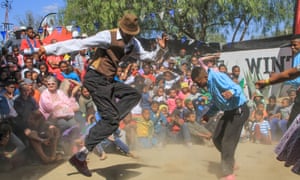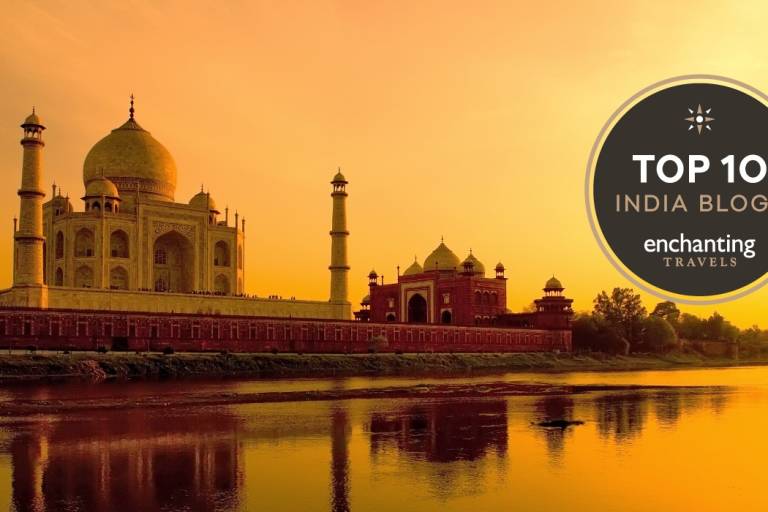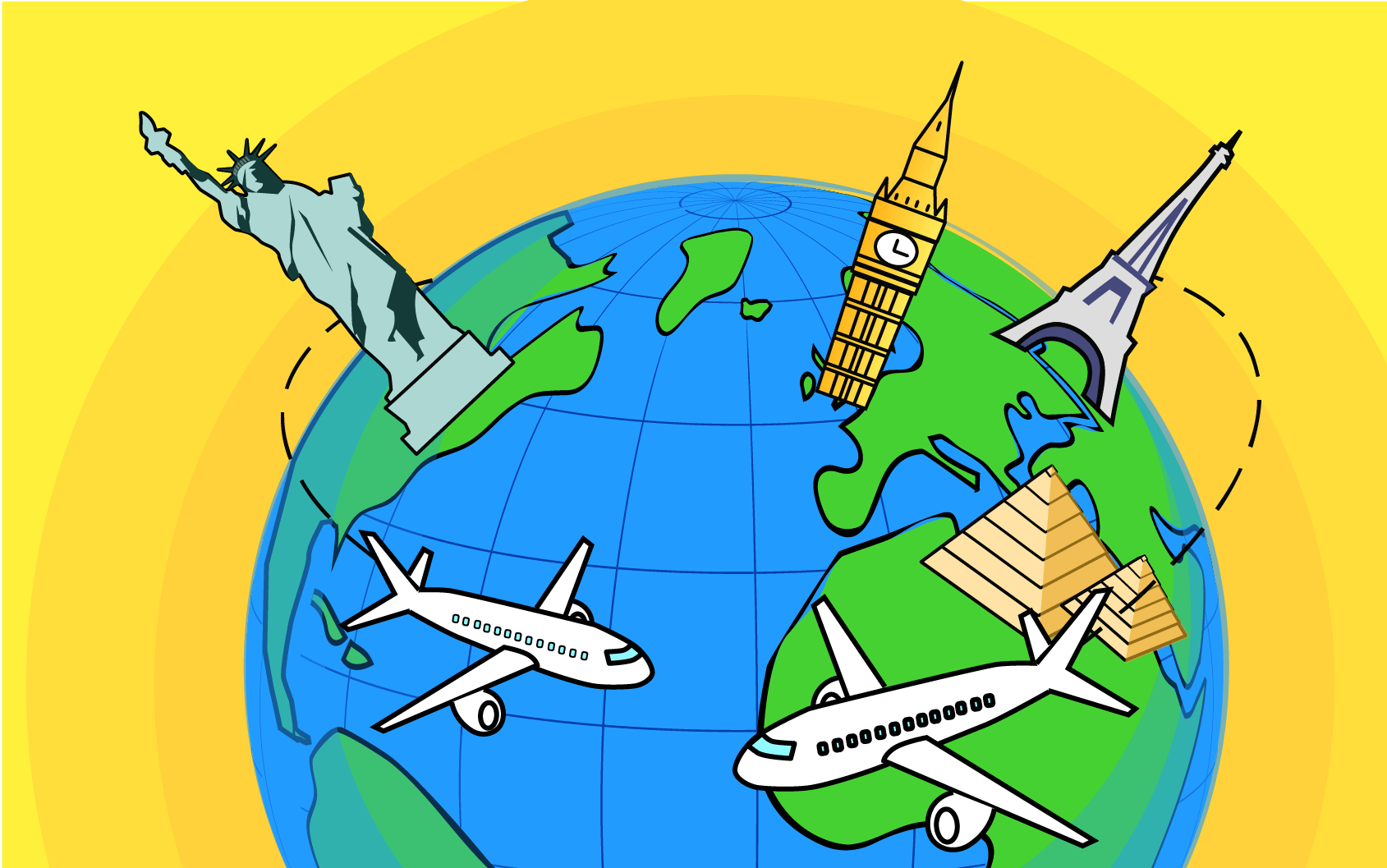
This month actor Louise Linton caused a social media storm when an extract of her African gap year memoir was published by the Telegraph and was widely panned online for being a tick list of cliches and stereotypes in the way the west has always liked to portray the continent. On Twitter, #LintonLies, set up by Zambian writer Lydia Ngoma, was trending as people started to pour scorn on Linton’s version of certain events and her take on life there. Think: “close encounters with lions”, “brutal tales of rape and murder,” and 12-inch long spiders, which would be terrifying, though they only exist in Laos.
But the problem is broader, deeper and goes back much further than Linton’s book. The dominant narratives about Africa in western writing and media still carry echoes of colonialism, commonly portraying the western visitor as benevolent saviour and denying those who actually live there any agency in the process.
This inevitably feeds into the way travellers perceive the continent and the kinds of trips people choose to go on. Travel to African countries still focuses on luxury safaris, where tourists can play the wealthy explorer, or voluntourism-style “gap yahs” of the kind Linton enjoyed, something parodied well by the Barbie Saviour instagram account, which pokes fun at the uncomfortable trend of young people broadcasting their lightweight philanthropic efforts on social media.
To explore the subject further, we asked three writers and editors to describe what changes they’d like to see in the way travellers and writers approach Africa.
Lydia Ngoma: ‘I would like to see more stories on progress … African wonder-kids making it in mainstream media’
Many books, travel guides and shows about Africa are predominantly created by white, western travellers, and while this is not a bad thing in itself, there are some tropes that we as Africans are tired of seeing.
What we usually see is the country of Africa (!) set against a beautiful backdrop of enchanting natural landscapes, exotic animals and its happy people dying of hunger, disease and/or war. We are shown one side of a rusty, old colonial coin where helpless Africans need saving from themselves in their dark paradise. This is a stereotype, an incomplete story, and the narrative needs changing.
Africa is a continent made up of 54 different countries which all have different, unique people and cultures which need to be individually appreciated, not slapped together as one. If one is going to document Malawi, let it be about Malawi and not about “Africa”, because Malawi alone cannot describe, let alone define the whole continent.
While some travellers positively document African countries’ massive steps in development, there is still a large number that have held onto the Africa-is-dying-only-we-can-save-them trope. Yes, there are still thousands that struggle on a daily basis, but that is not exclusive to Africa, so why are we the only ones portrayed by the trademark kid with the flies around his mouth? I would like to see more stories on progress – breakthroughs in health and education, state-of-the-art infrastructure, African wonder-kids making it in mainstream media. LikeSiyanda Mohutsiwa, a young writer from Botswana who started the trending twitter hashtag #ifafricawasabar. It opened up a discussion on important things that affect us such as politics, corruption, prejudices and the like, earning her a spot on a TED Talk. As for travel resources, sites I follow include zurukenya.com, which gives travel advice on Kenya, and akinmade.com which features the works of Lola Akinmade, a Nigerian writer and photographer. Great travel writers include Zambian journalist Humphrey Nkonde, and Pelu Awofeso from Nigeria.
In the same way we made Africa synonymous with death, war and hunger, let us change the narrative and make it more associative with progress and development.
Lastly – and this lies on my fellow Africans – let us get more African-written travel pieces on Africa. Instead of waiting for the western blogger to come and pose with the hunger stricken child, let us write our own stories and show the world the side of Africa which is less seen.
• Lydia is a writer from Lusaka, Zambia who started #LintonLies. She blogs ateyewoke.wordpress.com and you can follow her on Twitter @lydiangoma
Samira Sawlani: ‘Writing continues to present a particular experience as the only experience’
There is a running theme among the “I hugged a child during my gap yah in Africa and it transformed me/I taught in a village with only an American accent as a qualification/I fought rebels in the jungle and made it home in time to cook for all the starving African children/Africa and its people gave my life meaning, they’re so happy with so little” memoirs which crop up in mainstream western media from time to time – which is that they are all written by white writers.
While there is no shortage of travel writers from diverse backgrounds, their experiences are rarely seen in the mainstream media. Such stories would provide a more authentic and badly needed alternative to the cliched, often patronising tales by “white saviours” , with their echoes of Kipling and Conrad.
Like Louise Linton’s memoir, such writing reinforces negative stereotypes and continues to present a particular experience as the only experience; that of the white writer from the west.
Yet there is an abundance of travel writing, blogs and travelogues by writers on and from Africa, in the African diaspora and a range of racial backgrounds, just waiting to be discovered. This includes blogs like the Kenyan Camper, Mzansi Girland work by Nigerian travel writer Pelu Awofeso.
One great example is Looking for Transwonderland: Travels in Nigeria, by Noo Saro-Wiwa, who having grown up in the UK, returned to the place of her birth and wrote a fascinating, funny and poignant book about the five months she spent travelling across the country, an insight into the vibrancy, chaos, cultures, landscape and beauty of Nigeria.
When it comes to the west’s view of Africa, not only is there a need for more diverse voices, it’s time we had more decolonised ones too.
There are numerous examples of non-African writers and reporters currently doing strong work in Africa for European and American media. From the Anglophone press, the likes of James Copnall, Joe Penney, Jina Moore, Glenna Gordon, Howard French, Hannah McNeish and many others produce good, thoughtful journalism about all kinds of things. As I see it, such journalists tend to share a few basic commitments. Firstly, they speak with large numbers of local people at all levels of society. Secondly, they don’t make themselves the story. Thirdly, they attempt to engage seriously with the historical, political and economic contexts for whatever they’re reporting on – be that an election campaign, a social movement, a civil war, or the rise of a new musical genre.
I think the best travel writing usually sticks by those commitments too. One of the reasons it’s frustrating when writers recycle familiar colonial fantasies is that they’re refusing to engage with what’s actually in front of them, or else can only think about what they find in Africa today by comparison with spurious Eurocentric cliches about the continent. Whether a writer is going clubbing in a heaving mega-city or traversing some faraway mountain paradise, they’ll write best by respecting the place and the people in it.
[Source: Gurdian]

















